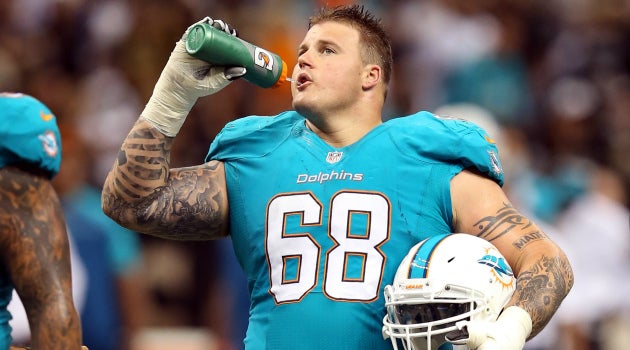
This past Sunday, the Bucs wiped the floor-or I guess you could say grass-with the backside of the Buffalo Bills, winning 27-6. Despite the blowout, rookie Mike “Napoleon Quarteback” Glennon turned in another rather sub-par performance.
So the day after the game, he was back grinding away at the “office,” trying to learn how to be a better QB (keep his job, keep his coaches job, etc….). Coach Greg Schiano immediately sent him home from the facility to rest, or do whatever he would do, if he weren’t a football player.
Schiano claims Glennon has been so working hard that he simply needed a break. In the end, to rest, Schiano thinks, would be more beneficial in his development as a quarterback.
Football is everything for many of these athletes. Of course many wouldn’t say it is everything (“family comes first” or some cliché like that). But how can you tell that what you believe is really what you believe? Or perhaps better put, how do you know if you really believe something? Simple, look at your actions.
All religions call people to live differently and to demonstrate their beliefs by their actions. But those actions in turn do more than demonstrate belief-they garner some response of divine favor and promise of heaven, or at least something heavenly. Christianity views behavior differently. Actions and behaviors are the fruit of a changed heart (Gal 5:22), but that fruit produced by God’s Spirit, does not bring about divine approval or promise of heaven. Divine approval and promise of heaven precede, produce, and motivate actions and behaviors. That’s a HUGE difference. Behaviors indicate a changed heart and the presence of belief in salvation by grace alone.
So how do I know what I deeply believe? Look at my actions.
Now I can’t say Schiano is as deeply concerned about Glennon’s heart as he is with his arm, statistics, and victories (though Schiano was featured in the Christian Sports Magazine “Sports Spectrum”), but he obviously sees what Mike Glennon really believes: football is everything and its okay to be consumed by it. It is only by the action, in this case, resting and taking a break, that Glennon can demonstrate that he truly believes.
Here are some ways that I can know if I really believe the gospel
1.) Jesus is my everything as opposed to church planting: I can focus on my relationship with Christ before considering what can I do to help this church start/grow.
2.) Jesus will build this church. While I, and many others will play a role in planting seeds (networking, outreach, evangelism), watering (follow up, discipleship, strategizing), only God can make this thing grow. How do I know if I believe that? I will pray and ask God to do before I try to do. I will make time for prayer if I believe this truth. I will also be able to rest. I will take a day off. If I don’t take a day off, then what I’m really believing is “God doesn’t have this thing, I’ve got to make sure everything is taken care of.” Silly to believe that, but sometimes my actions can indicate that is what I really believe.
Behaviors and actions for the Christian are important, but not important in the same way they are for other religions. They are not meritorious but the fruit of, and indication of what and in whom you believe. Therefore we can use our behaviors and actions to self-diagnose what it is we really believe.









